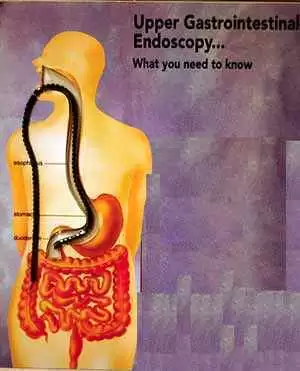The following piece was written by Ronald Hoggan who is a teacher at Queen Elizabeth High School in Calgary, Alberta, Canada.
Celiac.com Sponsor (A12):
There is much evidence linking untreated celiac disease with malignancy. I have recently been notified of publication of a report I have written on that connection, which is promised for the September, 1997 issue of Medical Hypotheses (1). In that report, I combine a review of the literature with an outline of a possible biochemical pathway whereby psychoactive peptides derived from the pepsin digests of wheat, rye and barley may down-regulate the activation of natural killer cells, the bodys first line of defense against malignancy. This is not a postulation that glutinous grains are carcinogenic. Humankind has been exposed to carcinogens throughout its ~ two million year evolution. But it is only in recent centuries that malignancy has increased exponentially, and has struck so many children and adolescents. This is clearly a counter-evolutionary trend when youngsters are afflicted, because the incidence should be decreasing over time, as these youngsters genes are being pruned from the gene pool. There is some evidence that has come to light since my aforementioned report, which will be of interest to celiacs and members of their families.
M. Stanislas Tanchou, a truly visionary physician, and campaigned with Napoleon Bonaparte, presented a paper to the Paris Science Society in 1843, which was a complex statistical examination of malignancy, offering evidence of increased malignancy with increased civilization (2). One of the prime indicators of a civilizing trend was a diet that included cereal grains. The greater the consumption of these foods, the greater the incidence of malignancy (3).
Dr. Chris Reading, an orthomolecular psychiatrist, in Australia, has documented the treatment of five cancer patients for depression (4). His testing for food allergies, and subsequent treatment of depression with dietary exclusion of cereal grains resulted in total remission of the cancers (which were also given conventional treatments) in all five patients he reports treating. One of these patients did die, but that was from the cancer treatment.
There are also two reports in the Journal of Clinical Gastroenterology (5) Lancet (6) that I cite in my Medical Hypotheses article. These reveal a total remission of malignancy in each patient. One report then recants the original diagnosis, and identifies the correct diagnosis as lymphadenopathy. In the other report, which spurs a heated debate, the original diagnosis is supported by a resected section of malignant bowel, and there can be no doubt as to the correct diagnosis.
Further, in a 1977 report, in Nutrition and Cancer (8), from Stanford University, all the children suffering from radiation and chemotherapy damage to the small bowel recovered fully from their chronic enteritis, and suffered no relapse of either the bowel obstruction or the disease. The treatment they were given was a gluten-free, dairy-free, low fat, low residue diet.
In an obscure Czech journal, a report has recently indicated that one or more of the gliadins, a sub-set of proteins in gluten, may also interfere with natural killer cell activation in peripheral blood (9). They tested the levels of natural killer cell activation in normal, and in treated celiacs, and found no significant difference. BUT, after 30 minutes exposure of the celiacs blood to gliadin, there was a reduced activation of natural killer cells.
For the last hundred years, billions of dollars have been spent identifying carcinogens. Most of what we encounter in our environment appears to have some measure of carcinogenic potential. Unfortunately, we have failed to reconcile that Humanity has been exposed to most of these carcinogens throughout its evolution. Conventional wisdom has pointed to the increasing levels of chemical pollution and environmental damage. And I do not doubt that these factors are contributing to the current epidemic of malignancy. What I do doubt is that segment of the population, variously reported at 20% to 30%, which has the HLA factors which predispose to celiac disease and many other autoimmune diseases, can mount an adequate immune response, with natural killer cells, against malignancy.
References:- Hoggan R, Considering Wheat, Rye, and Barley Proteins as Aids to Carcinogens in press Medical Hypotheses, 1997.
- Tanchou S, Statistics of Cancer London Lancet 1843; Aug 5, 593.
- Audette R, personal communication.
- Reading C, Meillon R, Your Family Tree Connection, Keats; New Canaan, Conn.: 1988.
- Wink A, et. al. Disappearance of Mesenteric Lymphadenopathy with Gluten-Free Deit in Celiac Sprue, J. Clin. Gastroenterol, 1993; 16(4): 317-319.
- Wright DH, et. al. Celiac disease and Lymphoma, Lancet 1991; 337:1373.
- Wright DH, et. al. letter Lancet 1991; 338: 318-319.
- Donaldson SS, Effect of Nutrition as Related to Radiation and Chemotherapy, Nutrition and Cancer, Winick ed. 1977; Wiley & Sons, NewYork, 137153.
- Castany M, Nguyen H, Pospisil M, Fric P, Tlaskalova-Hogenova H, Natural Killer Cell Activity in Celiac Disease: Effect of in Vitro Treatment on Effector Lymphocytes and/or Target Lymphoblastoid, Myeloid and Epithelial Cell Lines with Gliadin, Folia Microbial, 1995 (Praha) 40; 6: 615-620.






.webp.41b599148a9732cdef3985e98cf63936.webp)



Recommended Comments
There are no comments to display.